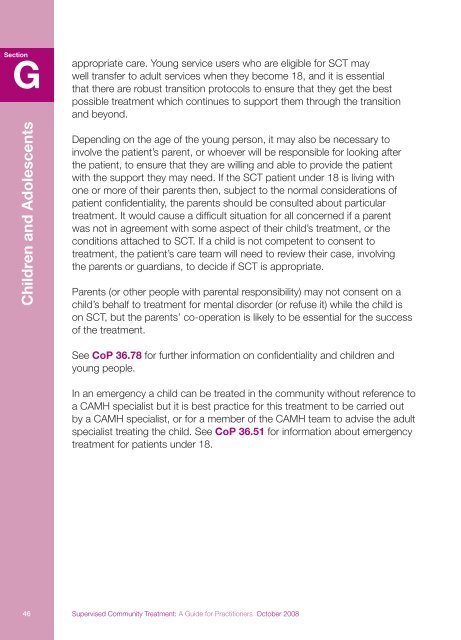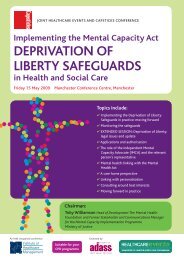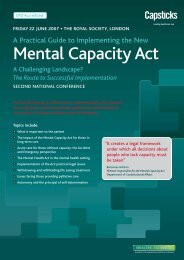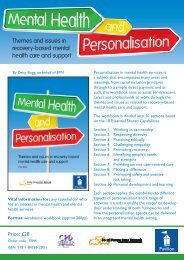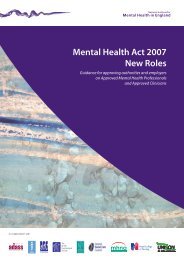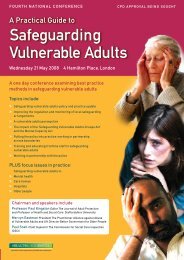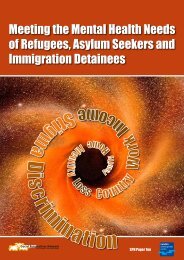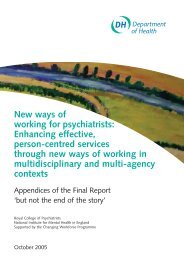Supervised Community Treatment: - Social Perspectives Network
Supervised Community Treatment: - Social Perspectives Network
Supervised Community Treatment: - Social Perspectives Network
Create successful ePaper yourself
Turn your PDF publications into a flip-book with our unique Google optimized e-Paper software.
Section<br />
Children and Adolescents<br />
appropriate care. Young service users who are eligible for SCT may<br />
well transfer to adult services when they become 18, and it is essential<br />
that there are robust transition protocols to ensure that they get the best<br />
possible treatment which continues to support them through the transition<br />
and beyond.<br />
Depending on the age of the young person, it may also be necessary to<br />
involve the patient’s parent, or whoever will be responsible for looking after<br />
the patient, to ensure that they are willing and able to provide the patient<br />
with the support they may need. If the SCT patient under 18 is living with<br />
one or more of their parents then, subject to the normal considerations of<br />
patient confidentiality, the parents should be consulted about particular<br />
treatment. It would cause a difficult situation for all concerned if a parent<br />
was not in agreement with some aspect of their child’s treatment, or the<br />
conditions attached to SCT. If a child is not competent to consent to<br />
treatment, the patient’s care team will need to review their case, involving<br />
the parents or guardians, to decide if SCT is appropriate.<br />
Parents (or other people with parental responsibility) may not consent on a<br />
child’s behalf to treatment for mental disorder (or refuse it) while the child is<br />
on SCT, but the parents’ co-operation is likely to be essential for the success<br />
of the treatment.<br />
Section<br />
Children and Adolescents<br />
See CoP 36.78 for further information on confidentiality and children and<br />
young people.<br />
In an emergency a child can be treated in the community without reference to<br />
a CAMH specialist but it is best practice for this treatment to be carried out<br />
by a CAMH specialist, or for a member of the CAMH team to advise the adult<br />
specialist treating the child. See CoP 36.51 for information about emergency<br />
treatment for patients under 18.<br />
46 <strong>Supervised</strong> <strong>Community</strong> <strong>Treatment</strong>: A Guide for Practitioners October 2008<br />
October 2008 <strong>Supervised</strong> <strong>Community</strong> <strong>Treatment</strong>: A Guide for Practitioners<br />
47


